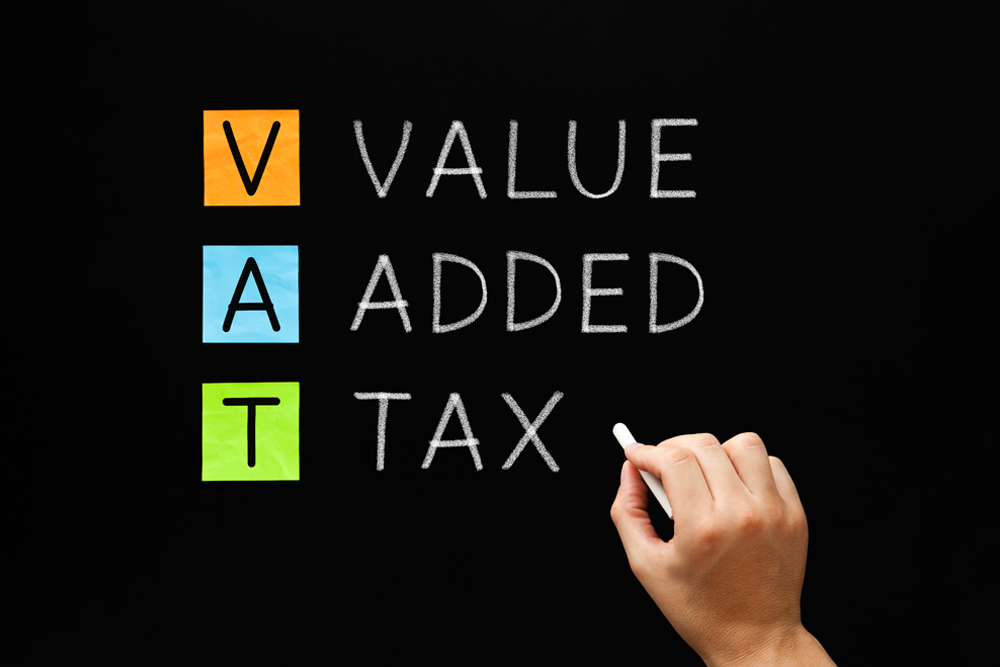In this post, we’re going to discuss the basics of Value Added Tax (VAT). By the end, you should understand the different types of supply, and how that affects the tax charged.
What is VAT?
VAT is a tax applied on the value added to goods and services at each stage in the production and distribution chain. It forms part of the final price the consumer pays for goods or services.
What is ‘value added’?
Value added is the difference between the price of product or service and the cost of producing it. For example, you buy a laptop for GHC 1500 and sell it for GHC 2500, the value added is GHC 1000.
Types of supply
Types of supply is a concept defined by the law to determine a) whether you are taxable and b) what rate of tax applies.
The VAT Act specifies four main types of supply. These are:
- Taxable supply
- Zero-rated supply
- Relief supply
- Exempt supply
1. Taxable supply
A taxable supply is a supply of goods and services subject to VAT. The general rule is, a supply of all goods and services in Ghana and goods and services imported into the country is subject to VAT. The consumer of such goods and services must pay Value Added Tax. The current rate of VAT on such supplies is 12.5%. These levies must also be charged at the time of invoicing, GET Fund 2.5% and NHIL Levy 2.5%.
As an exception to the general rule, the following are not taxable supplies:
- A supply of services by an employee to an employer is not a supply of services for Value Added purposes.
- The transfer of goods by an agent to the principal.
2. Zero-rated supply
A zero-rated supply is a taxable supply taxed at a rate of 0%. Export of goods and services are zero- rated supplies. The reason for classifying exported goods and service as zero-rated supplies is to encourage exports.
Below are examples of transactions which attract zero tax:
- Goods exported from Ghana by a supplier. The Customs division of GRA must certify these;
- Goods and services supplied to a Free Zones enterprise;
- Goods used as supplies on ship or aircraft traveling out of Ghana;
- A supply of services consumed outside Ghana.
Note: You must report these supplies in the monthly VAT returns filed at the tax office. The GRA penalizes tax payers for not disclosing zero-rated supplies in their tax returns. Don’t be a victim!
3. Relief supply
These are goods and services that are taxable, but the law provides relief from payment of the applicable tax. The VAT law relieves specified persons from payment of tax on specified goods purchased in Ghana and some taxable imported goods. Examples of such supplies are:
- Raw materials imported by VAT-registered manufacturers in good standing with the Association of Ghana Industries;
- Emergency relief items approved by the Parliament of Ghana;
- A supply for the official use of any Commonwealth or Foreign Embassy, Mission, Consulate, or a permanent member of the diplomatic service exempted from payment of customs duties by Parliament.
4. Exempt supply
A supply is exempt when a consumer of the goods and/or services is not liable to pay VAT by law. The First Schedule to the VAT Act provides a list of goods and services classified as exempt supply.
Twenty-three items are listed as exempt supplies. I discuss some of these supplies below:
A supply of accommodation in a dwelling
The law defines “Dwelling” as any building, premises or structure which is used predominantly for residential purposes and not for commercial purposes. This provision explains why commercial rental attracts VAT, but domestic rent does not.
A supply of the following crude oil and hydrocarbon products
| ● Petrol
● Diesel ● Residual fuel |
● Liquified petroleum gas
● Natural petroleum gas ● Kerosine |
A supply of medical services
Such as nursing, dental, medical, midwifery or paramedical services provided by certified personnel. Hospitals/ clinics and other health facilities do not charge VAT for medical/dental care to patients.
A supply of agricultural inputs
Including seeds, bulbs, fertilizers, pesticides, fungicides, insecticides, veterinary drugs and vaccines. This exemption is to promote agribusiness and reduce the cost of food.
A few more exemptions:
- A supply of water, excluding bottled water or other packaging suitable for supply to consumers;
- A supply of goods designed only for use by persons with disabilities;
- A supply of domestic transportation of passengers by road, rail or water, except the supply of haulage or rental or hiring of passenger and other vehicles.
In Summary
Now, you know that there are four different types of supply. The classification of the supply determines the rate of VAT charged.
Written by Tom Asaam.
Tom is the manager of the tax unit in SCG Chartered Accountants.

